A horizontal thin tube of length 2L completely filled with a liquid of density δ rotates about a vertical axis passing through one of its end and along the diameter of its side face with an constant angular velocity ω. Two vertical thin long tubes are fitted with the horizontal tube to measure the pressure difference between points A and B which are at same horizontal level as shown. Neglect viscous forces and surfaces tension of liquid.
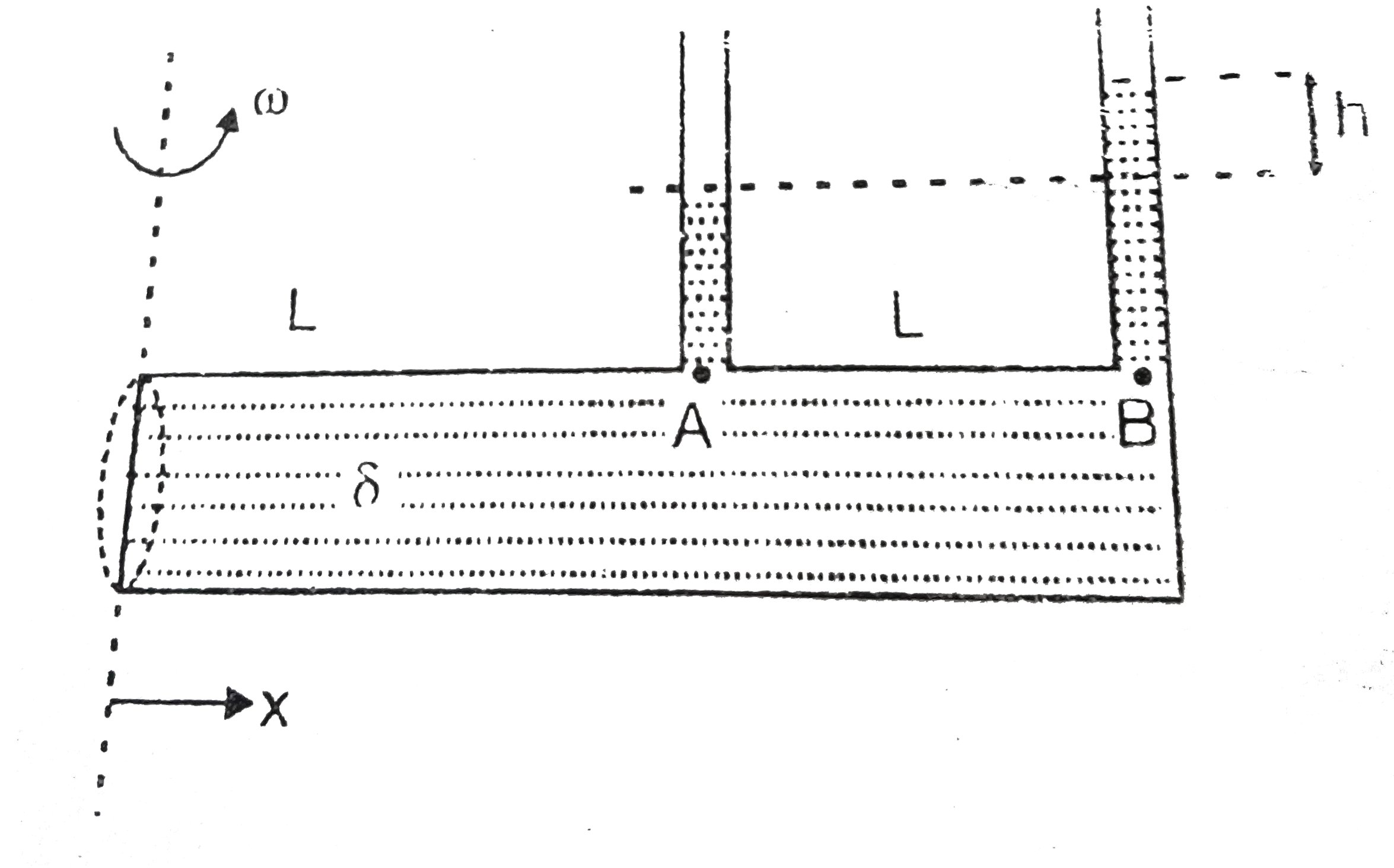
The difference in the heights (h) of the liquid column in the two vertical thin tubes is :
ω2L22g
3ω2L22g
5ω2L22g
None of these
The correct Answer is:B
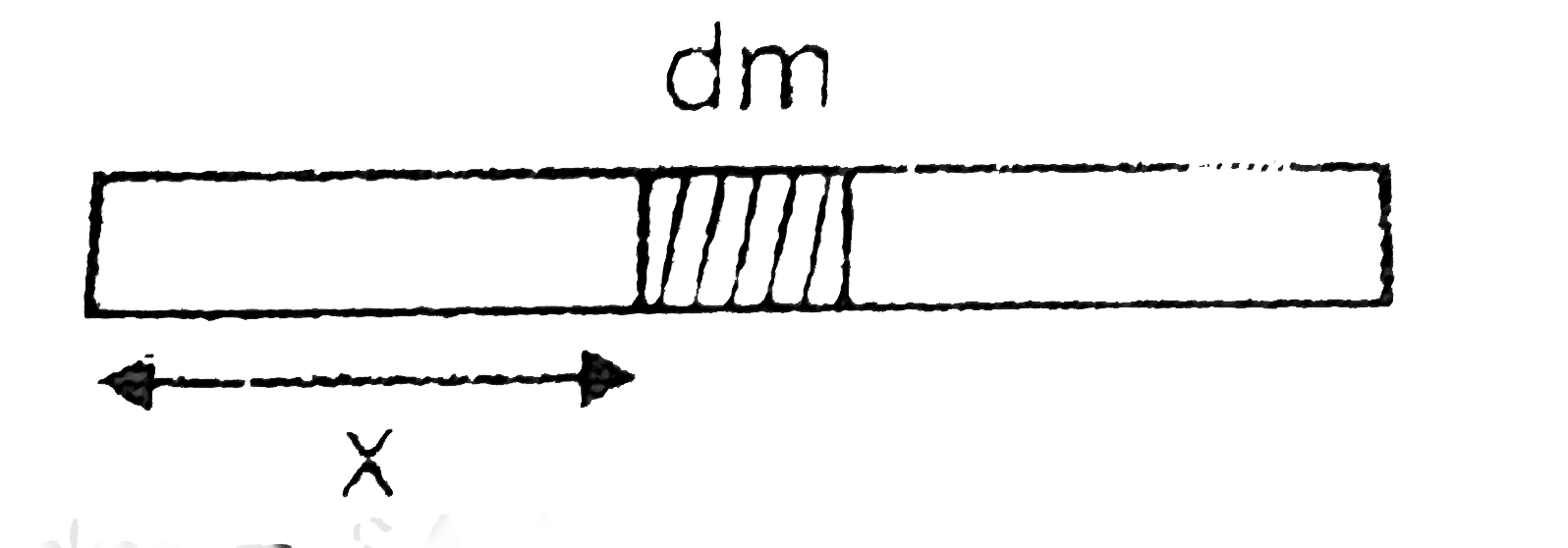
dm=δAdx
dPA=(δAdx)a
dPdx=δω3x
The difference in height
h=y2−y1=ω2(2L)22g−ω2L22g=3ω2L22g
Topper's Solved these Questions
- DAILY PRACTICE PROBLEMBOOK - RESONANCECHAPTER - DAILY PRACTICE PROBLEMEXERCISE - DPP No.40
20 Videos
- DAILY PRACTICE PROBLEMBOOK - RESONANCECHAPTER - DAILY PRACTICE PROBLEMEXERCISE - DPP No.41
9 Videos
- DAILY PRACTICE PROBLEMBOOK - RESONANCECHAPTER - DAILY PRACTICE PROBLEMEXERCISE - DPP No.38
20 Videos
- CURRENT ELECTRICITYBOOK - RESONANCECHAPTER - CURRENT ELECTRICITYEXERCISE - High Level Problems (HIP)
21 Videos
- ELECTRO MAGNETIC WAVESBOOK - RESONANCECHAPTER - ELECTRO MAGNETIC WAVESEXERCISE - Exercise 3
27 Videos
Similar Questions
Water is flowing through a long horizontal tube. Let PAandPB be the pressures at two points A and B of the tube
View SolutionA tube of length L is filled completely with an incompressible liquid of mass M and closed at both ends . The tube is then rotated in a horizontal plane about one of its end with a uniform angular velocity ω . Find the force exerted by the liquid at the other end .
View Solution
Knowledge Check
A horizontal thin tube of length 2L completely filled with a liquid of density δ rotates about a vertical axis passing through one of its end and along the diameter of its side face with an constant angular velocity ω. Two vertical thin long tubes are fitted with the horizontal tube to measure the pressure difference between points A and B which are at same horizontal level as shown. Neglect viscous forces and surfaces tension of liquid.
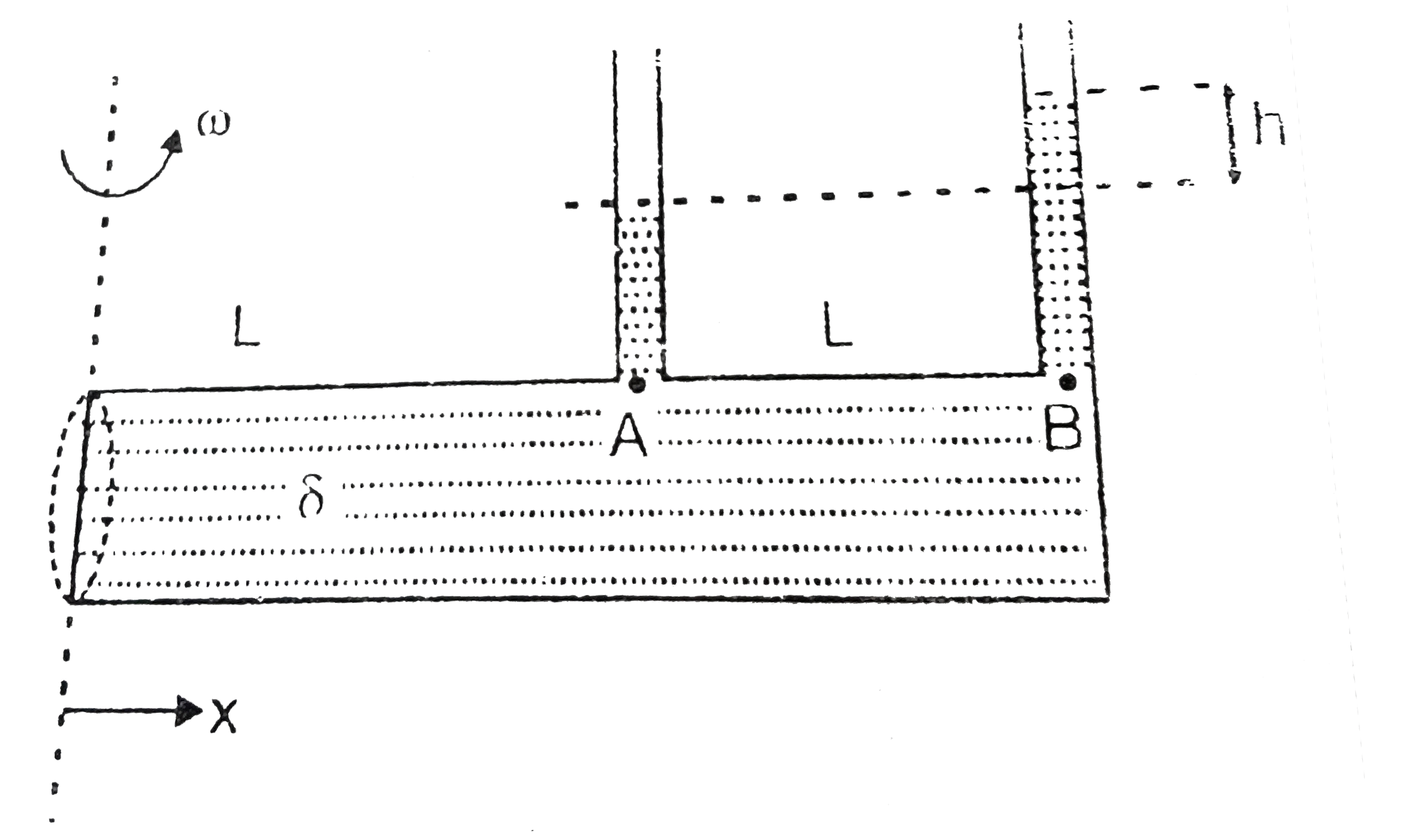
The graph of the pressure gradient (dPdx) with the distance x meaured from the axis of rotation is :A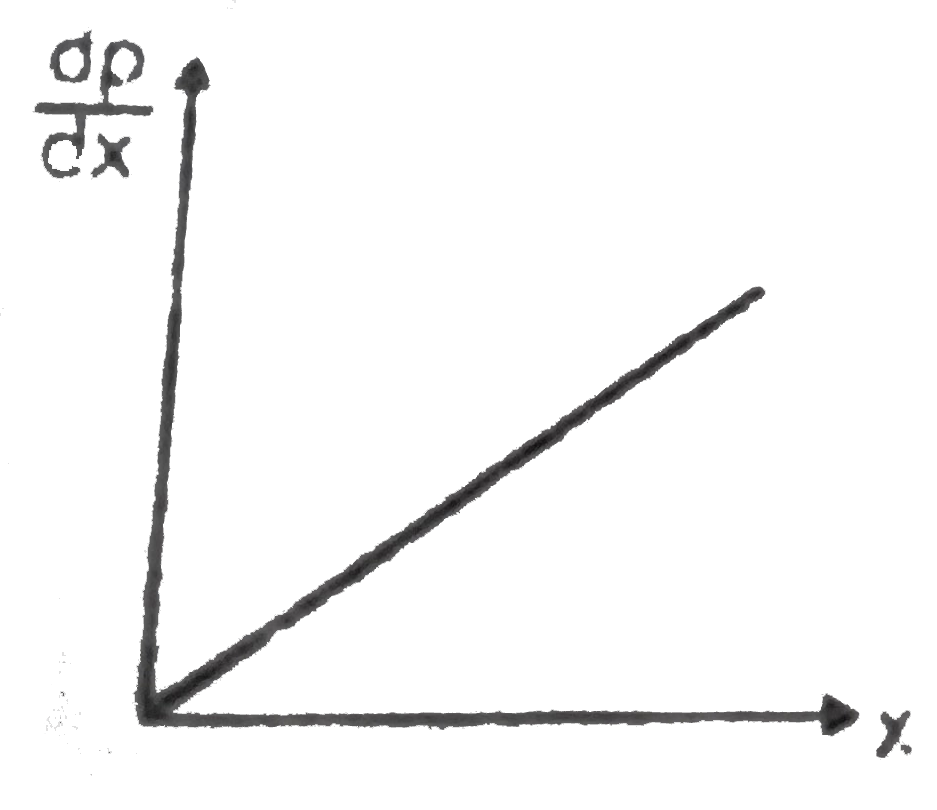 B
B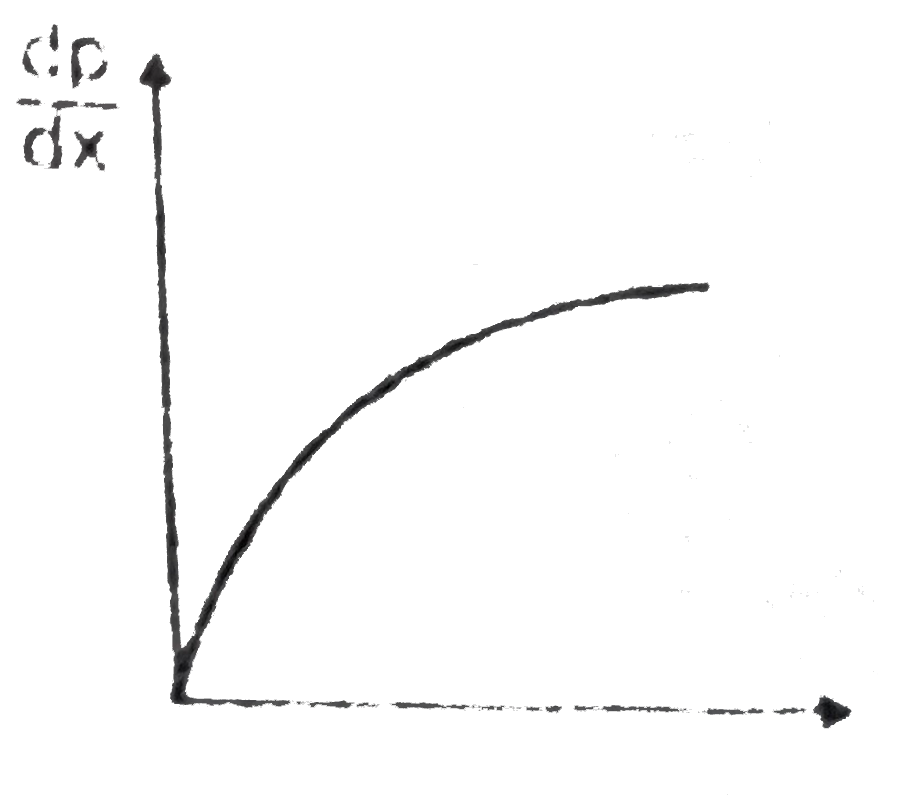 C
C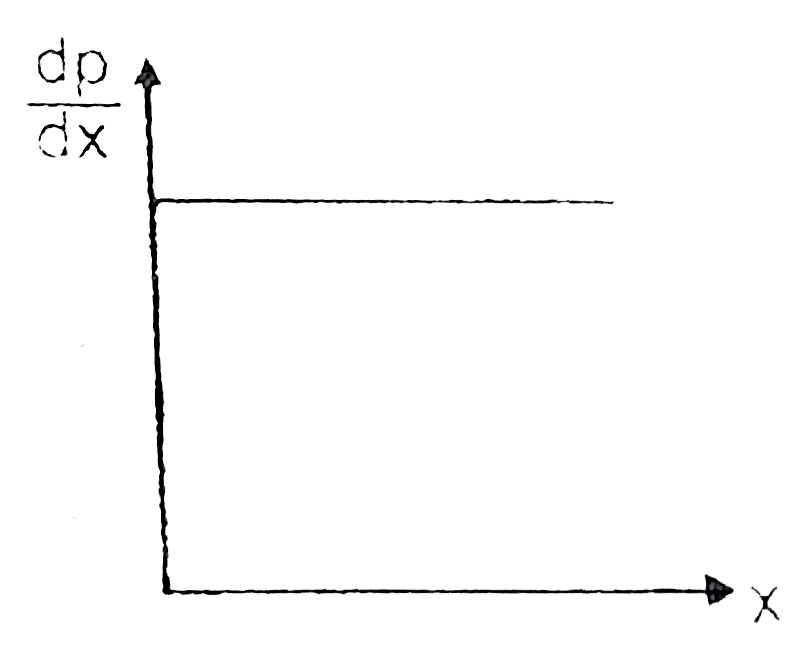 DNone of these
DNone of theseIf a horizontal cylindrical tube, partly filled with water is rapidly rotated about a vertical axis passing through its centre, the moment of inertia of the water about its axis will
AdecreaseBincreaseCnot changeDincrease or decrease depending upon clockwise or anticlockwise sense of rotationWater is flowign is streamline motion through a tube with its axis horizontal. Consider two points A and B in the tube at the same horizontal level
AThe pressures at A and B are equal for any shape of the tubeBthe pressure are never equalCthe pressure are equal even if the tube has a uniform cross sectionDthe pressures may be equal even if the tube has a nonuniform cross section.
A thin rod of mass m and length 2L is made to rotate about an axis passing through its center and perpendicular to it. If its angular velocity changes from O to ω in time t, the torque acting on it is
View SolutionA tube of length L is filled completely with an incompressible liquid of mass M and closed at both the ends. The tube is then rotated in a horizontal plane about one of its ends with a uniform angular velocity ω. The force exerted by the liquid at the other end is
View SolutionA tube of length L is filled completely with an incompressible liquid of mass M and closed at both ends. The tube is then roted in a horizontal plane about one of its ends with a uniform angular velocity ω The force exerted by the liquid at the other end is
View SolutionA uniform rod of mass m and length l rotates in a horizontal plane with an angular velocity ω about a vertical axis passing through one end. The tension in the rod at a distance x from the axis is
View SolutionA tube of length 'L' is filled completely with an in compressiblem liquid of mass 'M' and closed at both ends. The tube is then rotated in a horizontal plane about one of it's ends with a uniform angular velocity 'ω'. Then which of following statements are true :
View Solution
